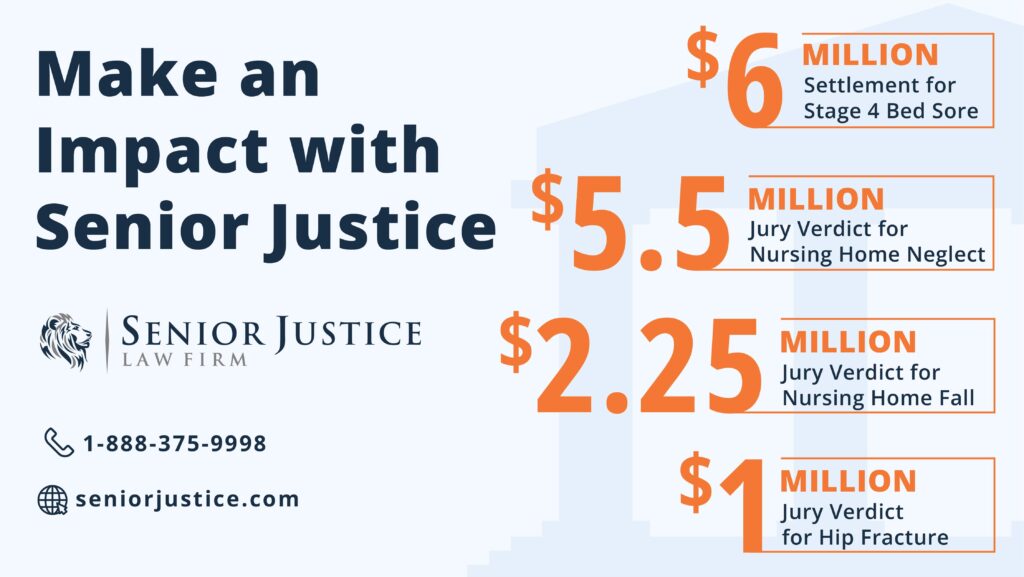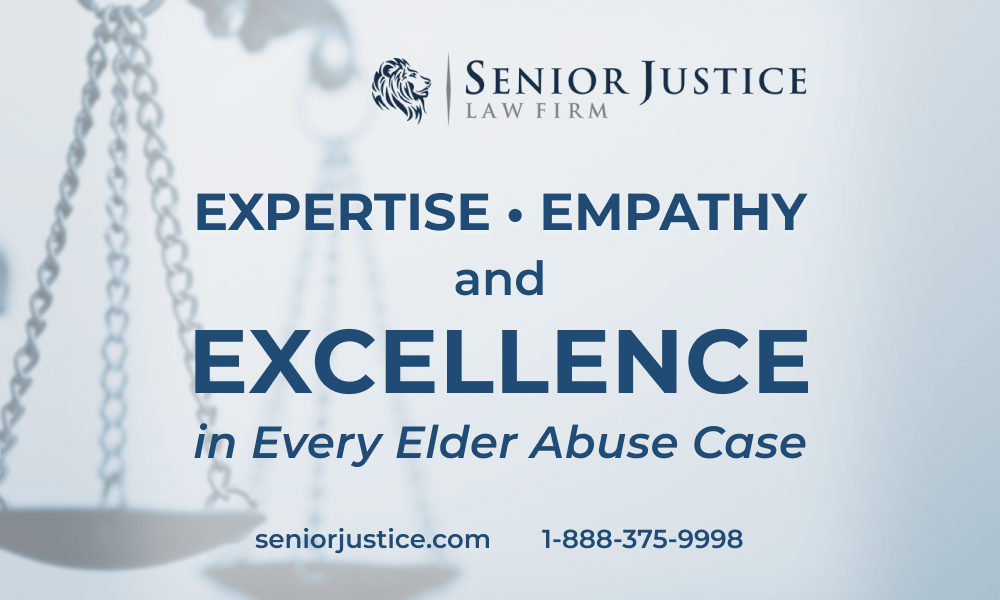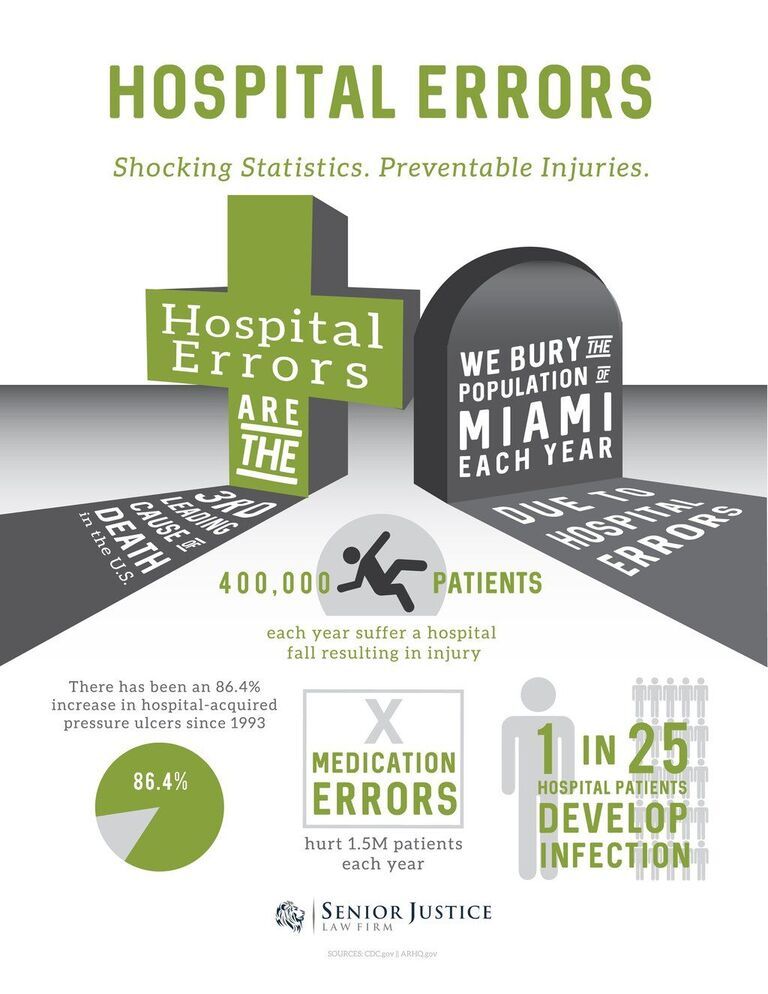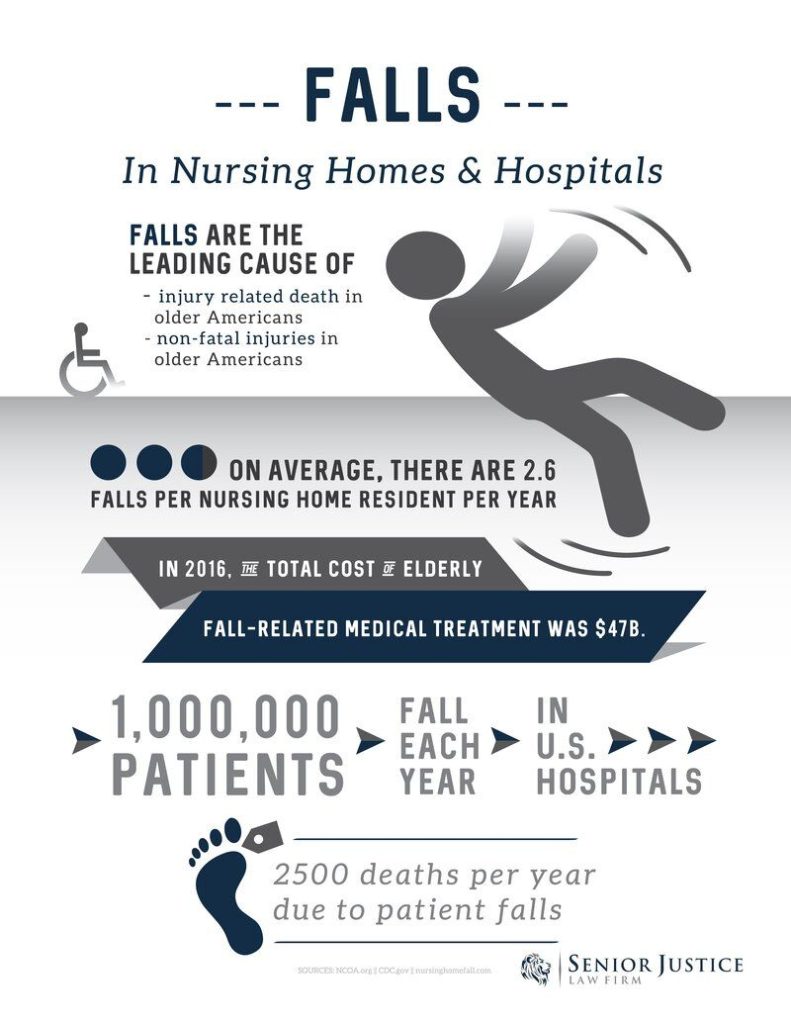Frequently Asked Questions Involving Elder Abuse Cases

Hiring Senior Justice Law Firm

Contact Us Today for a Free Consultation
Ready to start the conversation? Evaluating the case facts is a fairly simple and quick process. Simply call, chat, or submit your case facts. Our attorneys can usually decide whether we can assist with the matter within a week or so. Please be as descriptive as possible in telling us who was injured, who is to blame, and what you think they did wrong.
Call Senior Justice Law Firm today toll free at 1-888-375-9998.
Prefer typing over talking? We get that. Fill out the form below and our law firm will get back to you with real answers to your most pressing legal questions. Just remember to share as many case facts as possible so that we can better evaluate your case.
Report Elder Abuse





Q. What is the difference between an Assisted Living Facility and a Nursing Home?
A. An Assisted Living Facility (A.L.F.) provides a lower level of care than a nursing home. A nursing home (skilled nursing facility) provides 24/7 nursing care, while an ALF provides ‘assistance and supervision’ with activities of daily living.
Q. So does that mean that an Assisted Living Facility is not liable for allowing a resident to suffer injuries?
A. Not at all. Our law firm handles many ALF negligence lawsuits involving resident injuries. An ALF still has a duty to prevent wrongful injuries in their residents. Every ALF resident has a statutory right to live in a safe and decent living environment, free from ALF abuse and neglect. If the assisted living facility was negligent in the care or supervision of its resident, the ALF can be sued in an assisted living facility negligence lawsuit.
Q. How is it determined whether a resident is appropriate for assisted living, rather than a nursing home?
A. An outside physician or ARNP will usually sign a form attesting to the resident’s appropriateness for an assisted living or memory care facility. However, this form only means the patient is appropriate for assisted living at the time of admission. If the resident’s dementia increases or they continually suffer falls, it is the legal duty of the ALF to re-assess the appropriateness of the facility.
Q. What are common ALF negligence injuries?
A. ALF abuse and neglect claims usually involve one or more of the following injuries:
- Elopement (unauthorized wandering out of the facility)
- Repeated falls inside the ALF
- Unexplained injuries, like bruises, broken bones or bedsores
- Medication mistakes
- Assisted Living Bed Sores
- Allowing physical or sexual assault by staff or other residents
If your loved one suffered any of the above injuries inside an assisted living facility, you may have a viable negligence case versus the ALF. At Senior Justice Law Firm, all of our attorneys and staff exclusively focus on liability cases against assisted living and skilled nursing facilities. Let our years of experience help you get answers to your questions as to what happened at the facility.
Call us toll free now at 1-888-375-9998 to speak with our experienced and compassionate assisted living neglect attorneys for your free case consultation. We are here to help you and your family get justice for the facility’s wrongdoing.
Q. What is a Memory Care facility?
A. Recently, savvy assisted living facility corporations realized that they were losing much of their residents due to an increase in their dementia. ALF companies realized that they could keep higher acuity patients if they formed Memory Care wings or Memory Care units. These areas of the facility are specifically created for residents suffering from dementia or Alzheimer’s Disease. This means these memory care units owe a higher duty of care to resident’s when compared to traditional assisted living facilities.
Q. I don’t care about receiving money for my loved one’s injury or wrongful death. So why sue the assisted living facility?
A. Money damages are the only remedy allowed by our civil justice system to right the wrongs committed by the assisted living facility. Most families are unaware that ALF’s are typically owned by large corporate conglomerates. These companies usually generate millions of dollars in revenue. Their main focus (arguably, sole focus) is to make money.
So even if you do not care about getting awarded money for your loss, they care about money. A nasty letter, a negative online review, or even a state investigation means little to these large for-profit companies. But taking their money gets their attention. Taking an Assisted Living corporation’s profits makes the company change its behavior. We have seen negligent caretakers get fired, policies get changed and facilities get closed; all because of assisted living negligence lawsuits.

A. Yes. Generally speaking, hospitals employ their nurses, and the hospital is liable for their employee nurse’s negligence.
A. Maybe. Generally speaking, hospitals do not employ doctors, so a hospital is not liable for their doctor through a traditional employer-employee relationship. However, the hospital may be held responsible for a negligent doctor’s actions through agency theory.
A. Hospital negligence can result in an infinite number of injuries. The below list is not an exhaustive list by any means. However, common hospital neglect injuries include:
- Falls
- Pressure ulcers
- Perforations
- Medication mistakes
- Surgical errors
- Elder abuse and neglect
- Failure to diagnose
If you believe your loved one was neglected in a hospital and suffered grievous injury, contact Senior Justice Law Firm today for a no obligation hospital neglect case consultation: 1-888-375-9998.

Q. Why are hospital falls the most common injury in hospital negligence lawsuits?
A.
Q. Is there any excuse for my parent developing a bed sore while in the hospital?
A. Hospital Acquired Pressure Ulcers (known in the medical industry as HAPU’s) are a ‘Never Event‘ in medicine. This means, they should never occur. Insurance providers like Medicare do not reimburse hospitals for pressure ulcer care if the wound developed in their facility, because the federal government views these pressure injuries as preventable.
If your family member developed a pressure sore in the hospital, contact our law firm today to learn more about your legal rights. 1-888-375-9998
Q. I suspect my doctor committed malpractice. Should I continue to treat with the doctor?
A. If you believe the doctor provided treatment below the standard of care, then no, you should try to switch doctors. When you see your new doctor, do not mention your intention of suing the prior doctor for malpractice. Merely tell your new doctor that you suspect your prior physician made an error and that you are seeking a second opinion.
Q. Is a nursing home responsible for its doctor’s negligence?
A. Maybe. Most nursing homes do not have a physician on as an employee. However, a nursing home may be held responsible for a negligent doctor’s actions through agency theory, or through the legal principle of non-delegable duty.
Q. Is a hospital responsible for a doctor’s negligence?
A. Maybe. Generally speaking, hospitals do not employ doctors, so a hospital is not liable for their doctor through a traditional employer-employee relationship. However, the hospital may be held responsible for a negligent doctor’s actions through agency theory.
Q. Is missing a diagnosis considered medical malpractice?
A. Yes, misdiagnosis of a disease or missing a diagnosis can be deemed doctor malpractice. To determine the viability of a misdiagnosis or missed diagnosis malpractice case, our lawyers analyze the information available to the doctor at the time, the tests that were performed or could have been ordered, and whether the condition was treatable at the time. Our attorneys have handled numerous misdiagnosis doctor malpractice claims over the years and are available to speak with you about your potential case.
A. Yes, you can sue a private home health aide for negligence if they neglected your loved one. This is true whether it occurred inside a facility (like an ALF) or at their private home. The problem you typically run into is finding insurance coverage for the negligent home health aide.
A. Yes, you can, assuming the home health agency employed the aide, or, controlled the aide.
Proving legal employment of the private duty aide is easy. Establishing legal control is more challenging. The law provides for liability on the home health aide agency for the aide if the agency had the right to control the aide. Things we typically look for in home health aide agency liability claims are:
- Did the agency provide the aide to the family?
- Did the agency control the aide’s hours and days?
- Was the aide marketed through the agency?
- Did the aide wear an agency uniform or name badge?
- Did the agency accept payments from the family on behalf of the aide?
- Did/can the agency tell the aide what to do?
If the answer the any of the above is yes, then the agency likely controls the aide. This can impute liability for the aide’s negligence to the home health agency.
Q. What are common injuries in a home health aide negligence lawsuit?
A. We have handled cases against home health aides and agencies involving the following injuries:
- Falls and fractures
- Bedsores and pressure ulcers
- Theft
- Physical abuse
- Neglect of the patient
- Failure to administer medication
- Failure to call doctors and/or 911 when the patient’s condition changes
If your loved one suffered a serious injury or wrongful death due to neglect by a private duty aide, call Senior Justice Law Firm now at 1-888-375-9998 for a complimentary home health aide case consultation.

